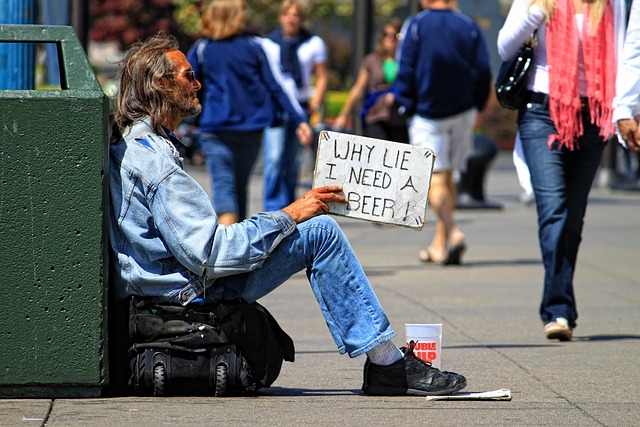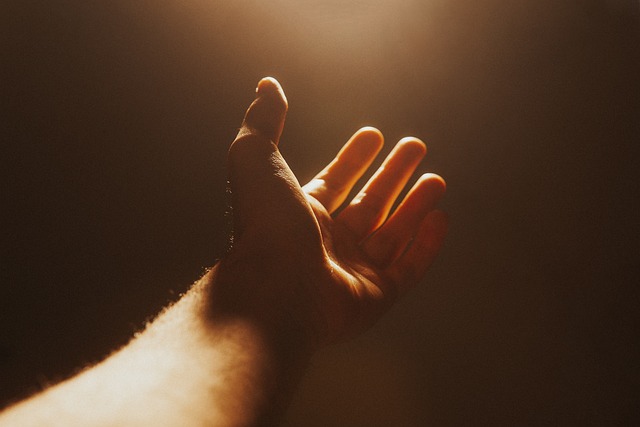There are a lot of religious teachings that support martyrdom. Giving up your life, sacrificing comfort, living in poverty in service to others are all seen as ways to sainthood – literally and figuratively. Many spiritual traditions teach that spirituality is free and services are to be shared with the community. So, is there a line where you are giving too much? I say yes!
Even good things can become bad things if they get out of balance. Just think of Goldilocks. Some porridge is too hot. Some is too cold, and some is just right. The same applies to giving. A person with healthy boundaries gives, and stops when it begins to interfere with his own well-being or values. Let’s look at some examples to put this into perspective.

“Sheila” and “Guy” are romantic partners. Sheila is a delightful, responsible companion until she goes into her drug binges. When that happens, she can engage in self-destructive, financially ruinous, and abusive behavior. Guy sees her good side and believes she will change. Although Guy has risked his job and health to do so, he takes care of her during these times and has paid lots of money for her treatment and care.
If a situation harms you, you may be giving too much. When you’re working harder at “saving” a person than they are to save themselves, your chances of success are very low. People have to be invested in their own recovery. You can’t pull them up hill if they are determined to stay down. Insisting that they change, or even just giving them the opportunity to change, doesn’t prove you are a good person with a good heart.
If you want to love them, love them. But love yourself too. Don’t let them pull you down with them.

“Guy” is a minister who believes that spirituality is free. He doesn’t charge for his services and donates space for meetings as well as materials. He accepts donations, but these only cover a tenth of his costs. Guy isn’t independently wealthy. He has to work and budget to make this work with his household and family. Guy believes in his work and believes that people would be “saved” if they only saw the light. He wants to bring it to them.
I happen to also agree that spirituality is free. However, things like meeting space and materials cost money. If the people who benefit from them don’t cover the cost, how much value does it have for them? We pay for what we value. If we’d rather get our nails done than pay for an energy healing, perhaps we don’t really want that energy healing. If we don’t invest in the healing, it’s not likely to have as much efficacy either.
Healing comes from the Creator and the afflicted. The “healer” is just the conduit. If the afflicted isn’t invested, the healing isn’t likely to be all that effective. When you don’t allow the patient to be part of the process, the glory goes to the healer. And perhaps that is why some healers don’t charge. They want to be saviors.
Another thing to think about is, some people just don’t think about these things at all. Have you ever discounted your service to someone who is “poor” then later found out that this person just went on a cruise, bought a new car, or made some other expensive purchase? Some people will say, “I can’t afford X” because they see it as a luxury and don’t value it. Some people value a Coach purse more highly than they value health. Does your discount make them value you or your service more? Does it enhance their life as much as that cruise or purse?

Sheila asks her angels for help. When they don’t answer, she gets frustrated. She sometimes feels like this is her only hope, but it’s a lonely, one way street.
Sheila is just doing what she was taught, but even spirits require reciprocity. When you ask for something, you have to also offer something of value in return. While your angels want to help you, they are not a wishing tree. They are your helpers. Helpers are more likely to help if you have a relationship with them. Offer them gratitude. Cultivate a relationship with them. Treat them like valued energies.
If you are a church goer, donate to the church so that you have a place to meet them. Place a statue of your saint somewhere that you can see it. If you meet them in nature, give to nature in some way. Create a garden to meet them. Give seeds to the birds. Advocate for clean air and water. If you are a praying person, create an altar or shrine to light a candle or place photos of your loved ones so that you have a connection to them.

Spirituality is a relationship. It’s not a one way street. If you refuse to give, you’re not engaging in a relationship. You’re imposing an obligation. If you are not receiving, you’re refusing gratitude and sustenance. When you give too much, you’re not allowing the person to take responsibility for his part of the relationship. You’re creating dependence.
Here are some tips to help with creating healthy balance.
- If someone is working for donations, give them a reasonable donation. How much would you pay for a professional service? What is YOUR time worth? What would these materials cost? Paying for things (with time, money, services, gratitude. etc.) shows your appreciation for them and what you received.
- Live in a state of gratitude. When you are grateful for all that comes into your life, it helps you to see the value for what you give and receive.
- Ask for what you’re worth. What you bring to the word has value. If you want to discount it or give it away to some, do that. For the rest, ask for what you are worth. If you don’t value you, why should others?
- Say yes to what you want. Self denial is not a sign of spirituality. We are not meant to suffer or live in poverty. The universe is abundant. Enjoy the abundance.
- Say no to what you don’t want. Blaming, victimization, self-denial don’t make a happy life. We’re meant to be happy.
- Don’t let someone obligate or guilt trip you into doing things that you don’t want to do. Some people will take advantage. They can’t if you don’t allow it. This goes for taking too much time or energy. Only give what you can happily give with an open hand. It’s okay to not answer the phone, refuse an invitation, or just say no.
The best guideline to how much to give is your heart. If you can give with an open heart and hand, and without judgment, give. If you can give without causing irreparable damage to yourself or self esteem, give. Allow yourself to receive. It helps you to stand in strength.

Leave a Reply